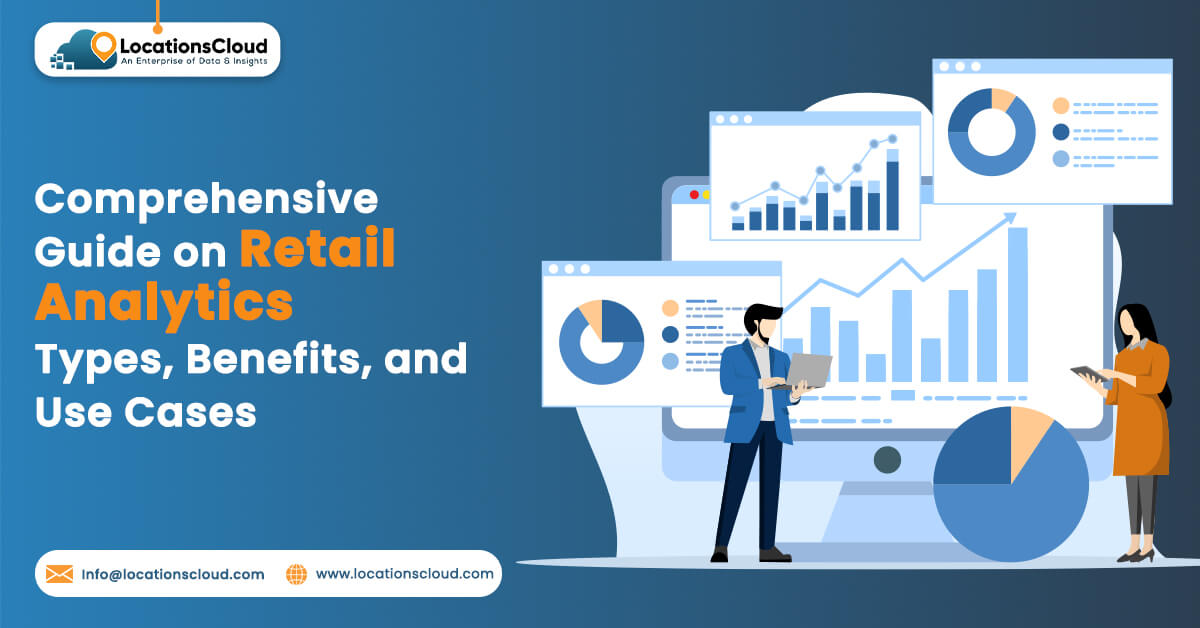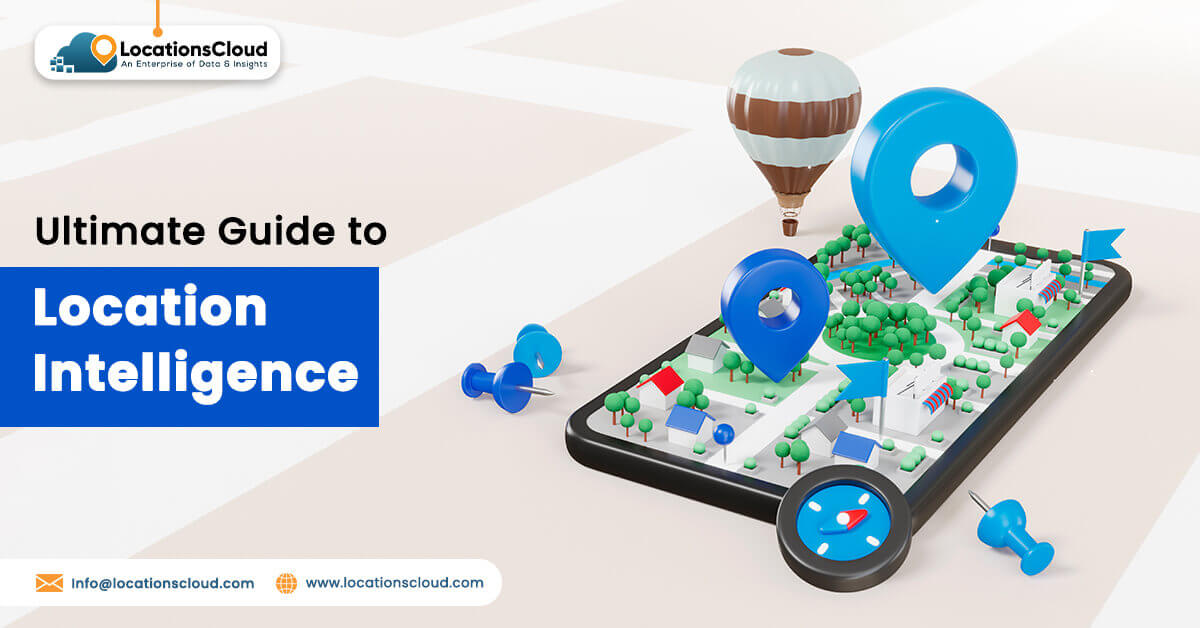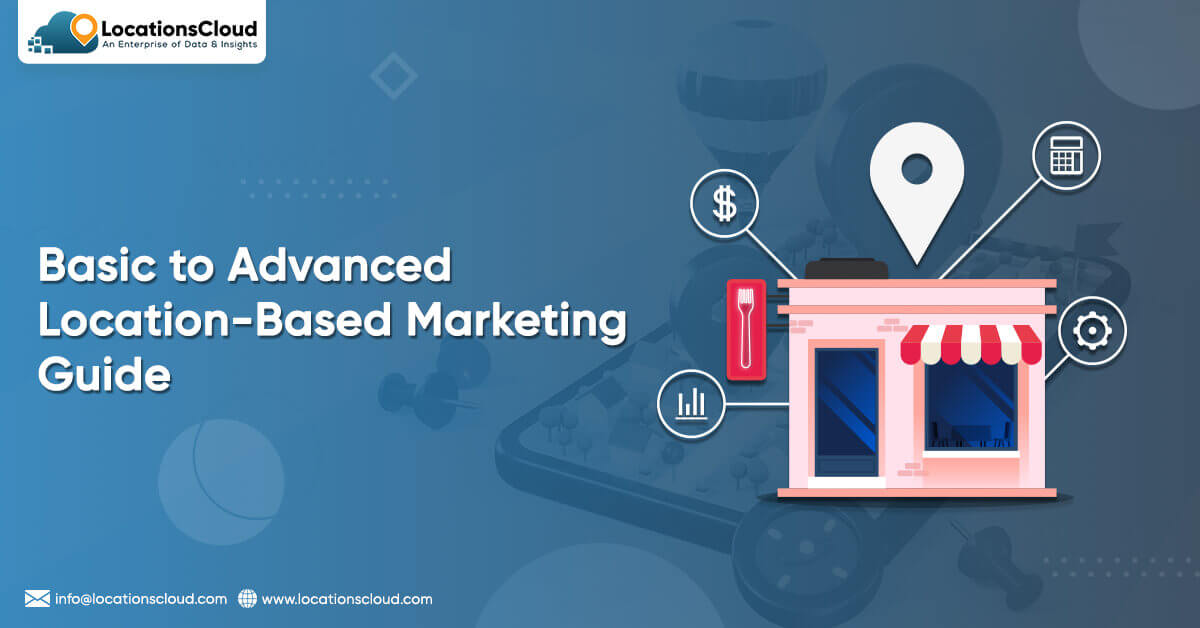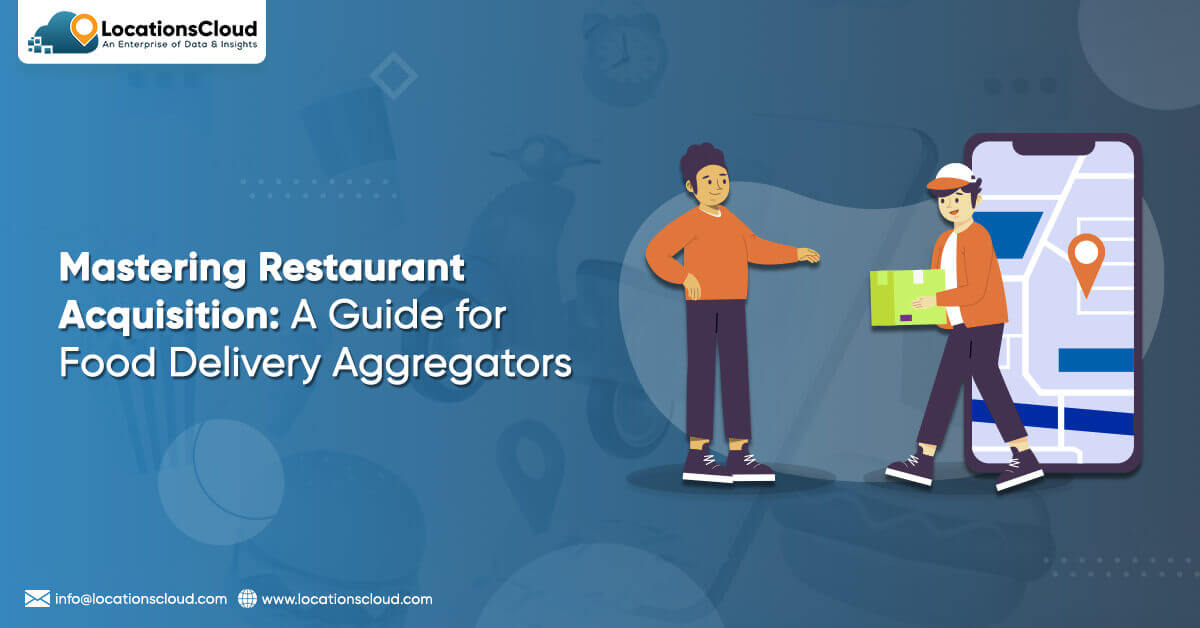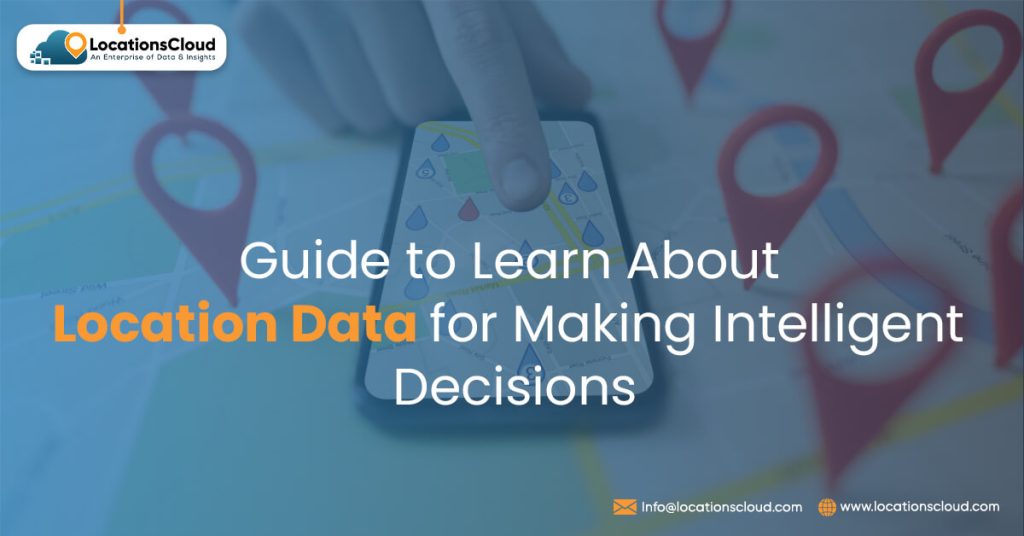
Do you want to gather all the information about a particular geographical position of a specific device or any other asset? Then, you are at the right place. Today, you will get to understand the workings of location data. You will understand the collection and tracking location data of physical products via GPS satellite or service. To better understand, a smartphone is a perfect example of how Location Data gets generated and tracked. Now, let’s know that Location Data comes with utmost importance.
Why is Location Data So Important?
In the online world, data is helping businesses make significant decisions. When it’s about location data, then it does help companies to go for more specific targeting. Real-time location data gives all the insights immediately. Let’s understand the importance of Location Data in depth:
- Location data helps make it easy for advertisers to target effectively. Identifying competitive intelligence, customer segmentation and other use cases becomes easy.
- The tracking location data of customer footfalls becomes easy to track. With the help of location data, retailers can make more strategic decisions. The retailers can make the staff available at the pickup site when a customer arrives.
- Location data has made it feasible to track the movement of products in the supply chain. The collected location data helps companies offer good customer service as the customer comes to know about the availability of a particular product.
- Great technology, i.e. Location Data, is helping the travel industry. The companies are upselling, and improved Customer Experience is the benefit of location data.
- The Real Estate is impacted positively by Location Data. It helps with the nearby ports, stores, and factories and even increases or decreases in traffic.
The above was the importance of buying Location Data and how it contributes to the companies’ success. Now, let’s understand how the Location Data gets generated. Remember, understanding the generation of Location Data will help you in many different ways.
Top Integrals Helping in the Generation of Location Data
The integrals we will be discussing ahead are the helpers of Location Data. Combining, they are making the most significant contribution to the overall economy.
1. A Source/Signal at Location
It is not a device but comes from another technology producing signals. Whenever the device listens to the signals externally and uses them for positioning, these signals can be classified as follows:
GPS
Over 30 satellites in orbit are present, which helps the system. The technology works in the device whenever the satellites receive signals. The GPS location data gives exact data in the outdoor area.
Wifi
One of the other sources of location signals is providing exact data indoors. Whenever any signal gets disconnected, devices can use Wifi for accurate pavement.
Beacons
These are small devices found in static or small locations. The Beacons transmit small energy signals that smartphones can easily pick up.
2. Cell Towers
Mobile devices and cell towers are both connected. This connection makes easy the sending and receiving of messages and calls. One device holds the capacity to identify various cell towers. With triangulation and based on signal strength, they get placed at the device’s location.
3. An Identifier
A smartphone is required to be associated with a device ID, an identifier to track the movement. The identifier is different for both Android and iOS. For Android, it’s known as Android Advertising ID and for iOS, it’s called Identifier for Advertising.
4. Additional Dataset
A location signal connected with an identifier lets users track the device’s movement. But, for in-detail insights, additional dataset or metadata is required. POI, i.e., Points of Interest, is essential for comparing the movement and behaviour of the audience in the real world.
Types of Location Data
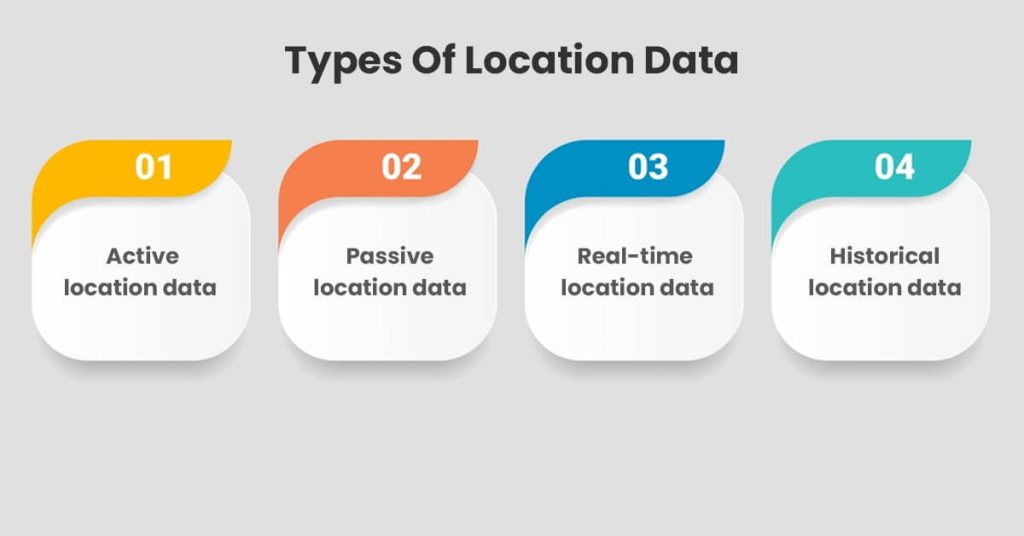
Learning about Location Data and its significance makes it essential for companies to purchase it. But every business operates in a different industry. It is essential to understand which type of Location Data should be chosen.
- Active location data: It is the type of data through which the device collects the data. For instance, your phone will collect GPS data when using your navigation app.
- Passive location data: The data keeps on collecting passively without direct input. Your phone can be tracked via nearby Wi-Fi networks or cell towers.
- Real-time location data: It is a type of data that is collected and updated instantly. It is commonly used for tracking vehicles or objects in real time.
- Historical location data: It is collected over time. It is also stored for later use. This data helps record where someone or something has been in the past. It can be proven to be accurate later on.
The above were the common types of location data. However, there are various other types. It is advisable to look for providers to get the location data.
How Can You Use Location Data?
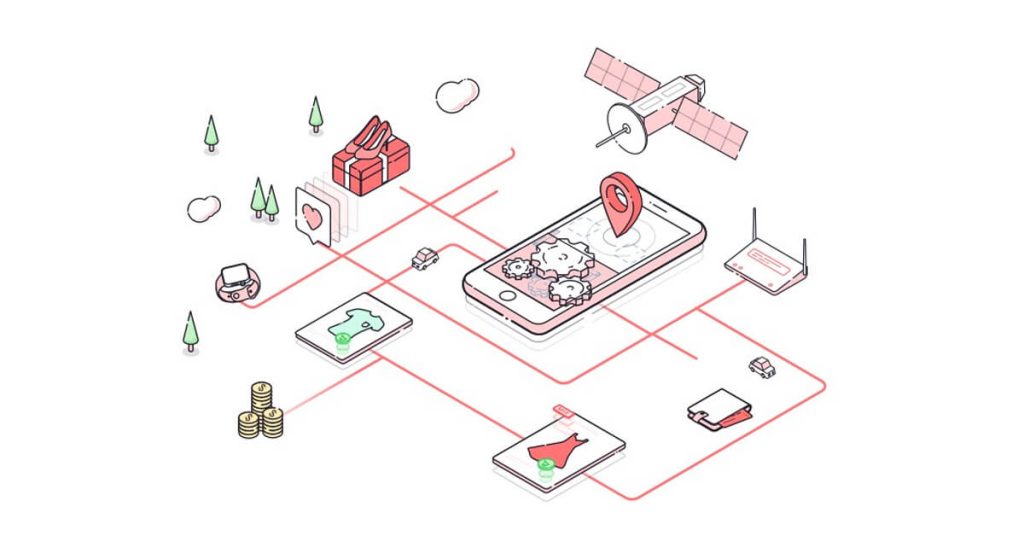
Location data is essential for almost every business industry. Mostly it is found fruitful for marketers as with the help of location data they achieve following:
Segmentation & Targeting: For running campaigns, marketers are always busy on the way to identifying the potential audience. Using location data helps in understanding the customers in a detailed manner.
Personalized Communication: With location data, communication, and personalization get delivered together. Businesses can personalize messages and ads to new customers.
Attribution: The store location data-specific goals are achieved with location data. The online and offline link gets created smoothly, from digital programmatic ads to store visits.
In-detail Insights: Location data gives customer demographics, like where the potential audience lives and works. It also gives data about monthly unique visitors, repeat customers, and time spent.
The Future of Location Data
The future with real-time location data looks full of opportunities for businesses. Almost every business size will find it helpful for their industries to boom.
- Location data will likely be helpful for the development of smart cities as the decisions are more data-driven. The data also improves the transport and the public services.
- Autonomous vehicles can use buy location data for safety and navigation, making the technology more prevalent as it comes into use.
- Location data is likely to improve Augmented Reality experiences. It will offer context-aware information and interactions.
- Historical Location data can help you monitor environmental changes. So, tracking of the wildlife animals will become easy. At the same time, you can watch the air quality in real-time.
The Risks of Location Data Misuse
There are several risks of location data getting misused. Identity theft is one of the most common risks of location data. Identity theft is generally expected, and it happens when somebody gets personal information. They might end up committing a crime in your name, too. Financial fraud goes with identity theft as well. If somebody gets access to your private information, they might open a fraudulent account in your name. At the same time, they can use it to make it seem like they are conducting legitimate transactions from usual locations. It makes it very challenging for you to detect the fraudulent activity.
Besides financial fraud, there is also a risk of targeted marketing. Targeted marketing can be beneficial by providing you with all the important product recommendations. It is likely invasive when it is based on a lot of location tracking. Some companies might use your location to create detailed profiles of your habits and preferences. This allows them to bombard you with advertisements that might feel impulsive. This can also lead to losing privacy and control over your digital life.
The Final Outlook
Get an improved on-time performance for your overall business goals. Using the location data in a strategic way gives the representations of objects in real time. It is high time for businesses to start choosing location data before making any big business decisions.
